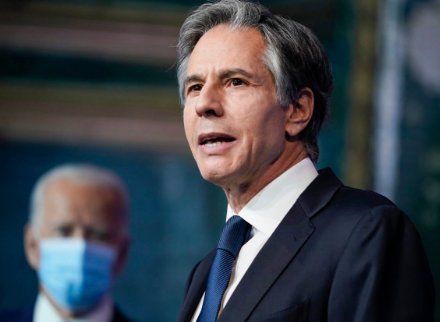Washington: Identifying a rising and assertive China as a major national security threat to the United States, the incoming US Secretary of State Tuesday told lawmakers that America needs to approach challenge from a position of strength not weakness.
“As we look at China, there is no doubt that it poses the most significant challenge of any nation state to the United States in terms of our interests, the interests of the American people,” Antony Blinken, Secretary of State nominee, told members of the powerful Senate Foreign Relations Committee during his confirmation hearing.
“There are rising adverse aerial aspects to the relationship. Certainly competitive ones and still some cooperative ones when it is in our mutual interest. I think as we were thinking about how to deal with China, and I think this is reflected in the work that the committee is done, we have to start by approaching China from a position of strength, not weakness,” Blinken said responding to questions from lawmakers.
The good news is, he noted, America’s ability to do that is largely within its control. “A position of strength when we are working with, not denigrating our allies, that’s a source of strength for us in dealing with China. A position further strength, when we are engaged and leading an international institution, not pulling back and ceding the terrain to China to write the rules, the norms, an animate those institutions,” he asserted.
“A position of strength when we stand up for our values, when human rights are being abused in Xinjiang or when democracy is being trampled in Hong Kong. Our ability to make the investment in ourselves that is a source of strength. The investments as necessary in our military to make sure that we can deter any aggression. All of these things are fully within our control and if we come together and do them, I think we can then deal with the specific challenges that China poses from that position of strength, not a position of weakness,” he said.
Blinken, in response to a question, noted that China has not been transparent with regard to coronavirus. “They did not share information. They did not give access when it mattered most in the early days of this virus,” he said.
“Had they done so, it’s possible that the course of the virus would’ve been different and we could have dealt with it sooner and more effectively,” he said.
China’s commercial diplomacy clear strategic content goes beyond the simple commercial proposition that may lie originally at the heart of what they’re doing, he said. The way China engages in personal diplomacy tends to be actually a pretty bad deal for the recipients, except possibly for leader who may benefit from the corrupt aspect of that, he said.
“So, when China’s coming in and it is ladening debt on countries in a way that they can’t possibly afford, so that ultimately it either owns the asset when they can’t repay it or resources are taken away from the people to pay off his debt, that winds up being a bad news story,” Blinken said.
“When they bring in Chinese workers instead of using local workers to actually build the projects, no environmental standards and in the corruption that comes with it, I think more and more countries that have been on the receiving end of China’s largesse have come to regret it,” he said.
PTI
